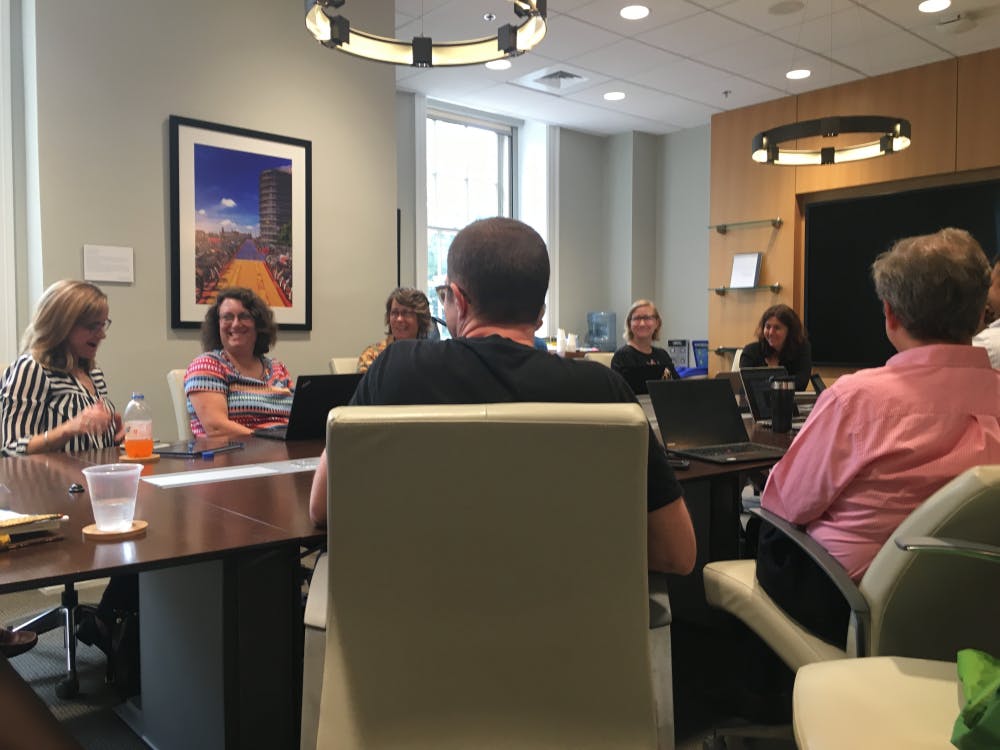The Faculty Executive Committee held their first meeting of the month on Monday. Discussion topics ranged from the undergraduate curriculum, to the Silent Sam controversy, to drafts of the new University budget.
The Faculty Executive Committee works to represent the interests of the general faculty to the UNC administration, in addition to working with the Faculty Council to make University-wide educational policies.
Undergraduate curriculum changes
Members spent the first portion of the meeting discussing a possible revamp of the undergraduate curriculum requirements. Senior Associate Dean for Undergraduate Education, Abigail Panter, visited to discuss the draft of a new undergraduate general education curriculum.
The newest features of the draft included capacities in certain skill sets, as opposed to requirements for specific kinds of courses. The draft also introduces a new Ideas, Information and Inquiry course requirement for all first-year students.
“What we are trying to do with these actions would be to think about the liberal arts overall, and to think about what is it that we value overall,” Panter told the committee. “(So) that all of our students really should be exposed to and have the ability to experience they’re here.”
Dramatic Art Department Chair Adam Versényi, who worked with Panter on the draft, pointed out that UNC has far more undergraduate curriculum requirements than any of its peer institutions. Versényi said the University currently requires student to take 77 credit hours of general education requirements.
“That is way out of whack with other schools in the system, and even more out of whack than our peer institutions across the country, which are generally at 48,” said Versényi, his comment echoed by nods from committee members.
An animated discussion followed as members talked about how to fix loopholes and weaknesses in the draft — for example, UNC art history professor Cary Levine pointed out how, with the new plan, students could theoretically graduate without taking an arts class. Members also brainstormed on how to go about assessing the success of a new curriculum if it is implemented.




